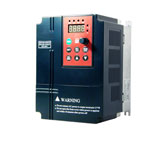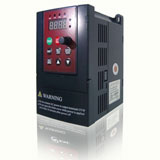Electric machinery education curriculum
I have worked in electric machine design and development for twenty years. When I was an undergraduate in the late 1980's, the study of electric machines as primary subject matter in the U.S. undergraduate EE curriculum was on the decline. At that time, I believe that my alma mater, Michigan Technological University was only one of 20 or so U.S. universities to have significant undergraduate course offerings in electric machines.
MTU offered EE undergraduates a choice of specialization in the degree: Systems, Circuits, Power and Machinery, Control, Computers, Electromagnetics, and two or three others. A mandatory undergraduate introductory course in "Electromechanical Energy Conversion" covered the machine performance equations for induction, synchronous, and DC machines, electrical and magnetic phasor diagrams of their equivalent circuits, windings and establishment of traveling and standing waves of the air gap flux density waveform in a three phase stator winding, three phase power, and the per unit system.
If one chose the "power and machinery" specialty, there were follow up courses in "Electric Machine Performance and Analysis" including a lab section. More coursework was available in Electric Power Systems which highlighted interconnection of electric machines and the grid (load flow studies, fault analysis, transmission line equations, etc.) Finally during the senior year, courses in transformer design, design of rotating machines, and electrical system construction standards were available.
I believe students today still have one required course in Energy Conversion, but the student who desires to learn more has perhaps only a single follow up course in Electric AC Drives - combining the study of machines and the power converters and inverters to drive them. My opinion is that this too broad an area to leave to a single follow-up course after energy conversion. It allows for only a cursory overview of the material, and an undergraduate should have the opportunity to pursue further study without the need for graduate school. Certainly advancements in control theory and power electronics as applied to electric machines justify increased attention at the undergraduate level.
Of course, I have not really offered a solution to this dilemma. I note that there are very good programs in some aspect of electric machines at the graduate level: the University of Wisconsin, Purdue, Illinois at Urbana-Champagne, Clarkson, Texas A&M, Missouri-Rolla, and University of Akron (which I currently attend) come to mind - but I am sure there are others. They seem to have grown programs around faculty with an interest in electric machines. I imagine that some of this content and research trickles down to the undergraduate level in the form of senior projects or undergraduate research opportunities.
Dr. A. Wilder of the "Center for Electromechanics" at Texas A&M gave a presentation at an IEEE conference in Atlanta in late 2008 or early 2009 on the different specialties and research interests of university consortium particular to electric machines and drives. Contact me privately if this would be of interest to you.
MTU offered EE undergraduates a choice of specialization in the degree: Systems, Circuits, Power and Machinery, Control, Computers, Electromagnetics, and two or three others. A mandatory undergraduate introductory course in "Electromechanical Energy Conversion" covered the machine performance equations for induction, synchronous, and DC machines, electrical and magnetic phasor diagrams of their equivalent circuits, windings and establishment of traveling and standing waves of the air gap flux density waveform in a three phase stator winding, three phase power, and the per unit system.
If one chose the "power and machinery" specialty, there were follow up courses in "Electric Machine Performance and Analysis" including a lab section. More coursework was available in Electric Power Systems which highlighted interconnection of electric machines and the grid (load flow studies, fault analysis, transmission line equations, etc.) Finally during the senior year, courses in transformer design, design of rotating machines, and electrical system construction standards were available.
I believe students today still have one required course in Energy Conversion, but the student who desires to learn more has perhaps only a single follow up course in Electric AC Drives - combining the study of machines and the power converters and inverters to drive them. My opinion is that this too broad an area to leave to a single follow-up course after energy conversion. It allows for only a cursory overview of the material, and an undergraduate should have the opportunity to pursue further study without the need for graduate school. Certainly advancements in control theory and power electronics as applied to electric machines justify increased attention at the undergraduate level.
Of course, I have not really offered a solution to this dilemma. I note that there are very good programs in some aspect of electric machines at the graduate level: the University of Wisconsin, Purdue, Illinois at Urbana-Champagne, Clarkson, Texas A&M, Missouri-Rolla, and University of Akron (which I currently attend) come to mind - but I am sure there are others. They seem to have grown programs around faculty with an interest in electric machines. I imagine that some of this content and research trickles down to the undergraduate level in the form of senior projects or undergraduate research opportunities.
Dr. A. Wilder of the "Center for Electromechanics" at Texas A&M gave a presentation at an IEEE conference in Atlanta in late 2008 or early 2009 on the different specialties and research interests of university consortium particular to electric machines and drives. Contact me privately if this would be of interest to you.



